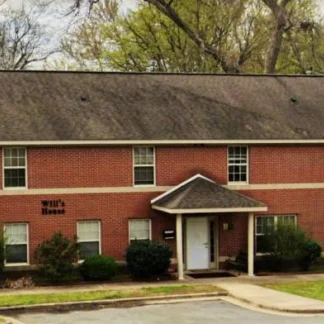Al Anon
Al Anon in Little Rock, Arkansas is a 12-Step program available to individuals w...
BCD Supportive Housing Program offers safe housing in Little Rock, Arkansas for individuals currently receiving treatment for mental health conditions or behavioral health conditions. Alcohol and drug rehab services, behavioral health care, and medical treatment are all available.
The BCD Supportive Housing Program is a residential program. Their services include mental health and addiction treatment for dual diagnosis, chemical addictions, and behavioral addictions. Evidence-based treatment interventions are provided.
BCD Supportive Housing Program accepts most insurance plans, including Medicare, Medicaid, Anthem, Blue Cross Blue Shield, ComPsych, TRICARE, Wellmark, Beacon, Magellan, Kaiser, and HCSC. Out of network benefits may vary, so it is important to verify with your insurance carrier that your plan will cover the cost of treatment.
Contact us for more information: (501) 663-7221

Connect with BCD - Supportive Housing Program by calling their admissions team directly.
(501) 663-7221 Website Get DirectionsThe Commission on Accreditation of Rehabilitation Facilities (CARF) is a non-profit organization that specifically accredits rehab organizations. Founded in 1966, CARF's, mission is to help service providers like rehab facilities maintain high standards of care.
CARF Accreditation: Yes
Group therapy is any therapeutic work that happens in a group (not one-on-one). There are a number of different group therapy modalities, including support groups, experiential therapy, psycho-education, and more. Group therapy involves treatment as well as processing interaction between group members.
In individual therapy, a patient meets one-on-one with a trained psychologist or counselor. Therapy is a pivotal part of effective substance abuse treatment, as it often covers root causes of addiction, including challenges faced by the patient in their social, family, and work/school life.
Life skills trainings involve all the skills a person must have in order to function successfully in the world. These include time management, career guidance, money management, and effective communication. Truly successful addiction recovery is based on the ability to not only live substance-free, but to thrive. Life skills teaches the practical necessities of functioning in society, which sets clients up for success in life, and therefore sobriety.
In individual therapy, a patient meets one-on-one with a trained psychologist or counselor. Therapy is a pivotal part of effective substance abuse treatment, as it often covers root causes of addiction, including challenges faced by the patient in their social, family, and work/school life.
Life skills trainings involve all the skills a person must have in order to function successfully in the world. These include time management, career guidance, money management, and effective communication. Truly successful addiction recovery is based on the ability to not only live substance-free, but to thrive. Life skills teaches the practical necessities of functioning in society, which sets clients up for success in life, and therefore sobriety.
Life skills trainings involve all the skills a person must have in order to function successfully in the world. These include time management, career guidance, money management, and effective communication. Truly successful addiction recovery is based on the ability to not only live substance-free, but to thrive. Life skills teaches the practical necessities of functioning in society, which sets clients up for success in life, and therefore sobriety.
Al Anon in Little Rock, Arkansas is a 12-Step program available to individuals w...
Little Rock Outreach, located in Little Rock, Arkansas, provides alcohol and dru...
Quality Living Center - Transitional Living provides alcohol and drug rehab serv...
GAIN, located in Little Rock, Arkansas, provides mental health treatment to men ...